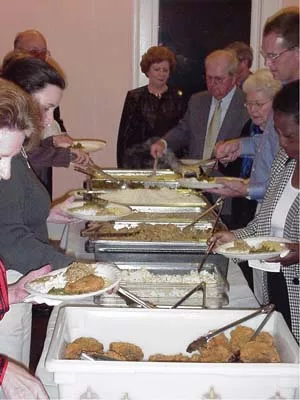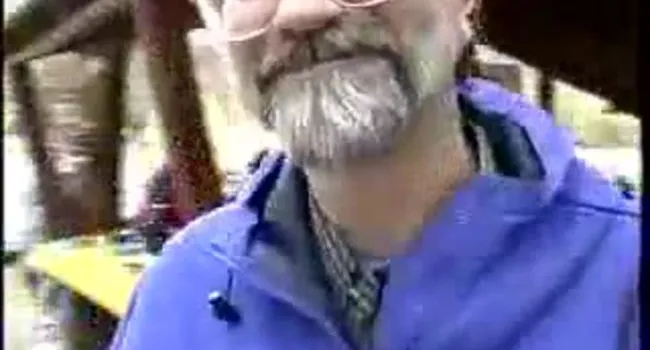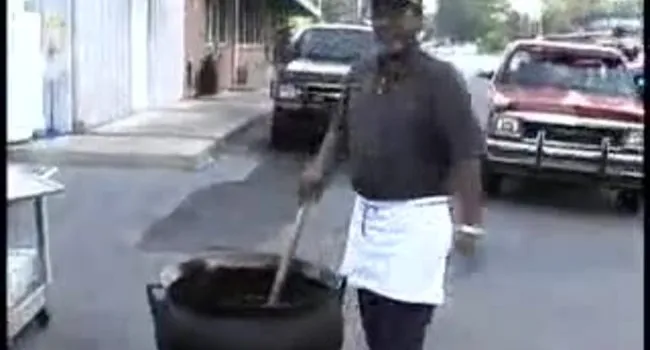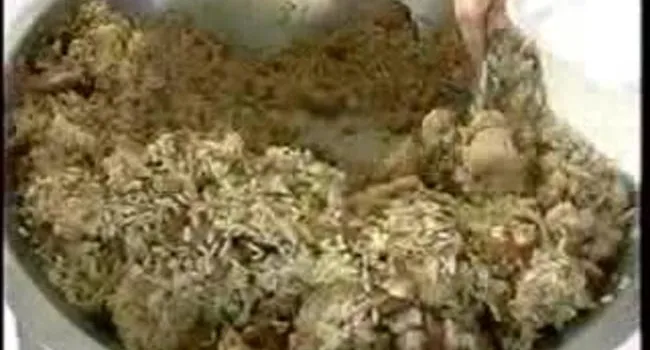
Video
Cecil Smith of the Hwy 34 VFD delivers hash to neighbor Kevin Flick, who discusses hash as a South Carolina tradition.
Foodways are one of the most prevalant community-based art forms in the South. South Carolina history is strongly rooted in agriculture and food has long been an important aspect of economic and social life. From large rice plantations in the Lowcountry to family farms tucked in the hillsides of the Piedmont, food preparation was a large part of daily life. Parents taught children how to prepare vegetables and dress hogs. Different ethnic groups brought recipe variations with them when they settled throughout the state. Germans in the Midlands, French influences on the coast, and Scots-Irish in the Piedmont. More important, recipes synthesized African and Native American influences to create a wholly unique environment.
Content is provided by McKissick Museum, University of South Carolina.
For further information about any of the artists featured on Digital Traditions, send your questions and comments to hallagan@mailbox.sc.edu.

Video
Cecil Smith of the Hwy 34 VFD delivers hash to neighbor Kevin Flick, who discusses hash as a South Carolina tradition.
Video
Co-owners Brantley Beach and Steve Jackson discuss the hash recipe in their restaurant on Johns Island, SC.
Video
Project advisor Jay Williams reads from the book “Tale of the Elk”. Williams organized and developed the exhibit “Southern Stews” in 2001.
Video
James Workman talks more about how he prepares hash and the ingredients.
Video
Clyde Ellison, son of famous hashmaster Pee Wee Ellison, talks about the fellowship of hashmaking.
Video
Chicken Bog is the featured dish at the Galivant’s Ferry, SC, Stump Meeting.
Video
Jerry Gantt shows the site of the Grendel Mill hash house. Beth Rembert recalls working at the hash house as a child. Sharon Deas’ father, Charles Flinn, was the hashmaster at the Grendel Mill hash...